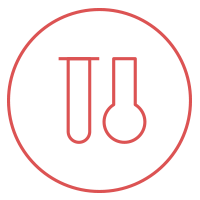The 2nd International Anti-Doping Symposium was successfully hosted by China Anti-Doping Agency (CHINADA) and co-organized by the anti-doping branch of the China Sport Science Society, from August 25th to 26th, 2022. Li Yingchuan, Vice Minister of the General Administration of Sport of China, attended the Symposium. Witold Bańka, President of WADA (World Anti-Doping Agency), Yang Yang, Vice President of WADA, Hayashi Kazuhiro, Director of Asia/Oceania Office of WADA, and Benjamin Cohen, Director General of ITA (International Testing Agency) were also invited.
Under the theme of “Innovation for Clean Sport”, the main content of the symposium is to show and share the achievements of science and technology, and the future development prospects in the anti-doping work in China and the world, to provide a platform for exchanges on the related issues for the international anti-doping community. In recent years, CHINADA has continuously promoted innovative research and development in science and technology for doping control, and strives to be at the forefront of science and technology innovated fighting against doping.
Li Yingchuan, Vice Minister of the General Administration of Sport of China, expressed that the Chinese government has all along attached great importance to anti-doping work. In recent years, China has devoted more efforts to further modernizing the anti-doping governance system and governance capacities with Chinese characteristics, leading to significant and encouraging progress in China’s anti-doping governance. At the Tokyo Olympics and the Beijing Winter Olympics, all the athletes in the Chinese delegation competed clean, achieving “zero occurrence” of doping, showing that China has fulfilled its responsibilities and obligations as a major country with concrete actions. In terms of scientific and technological innovation, he pointed out that as the global anti-doping history shows, the active outcomes achieved in anti-doping governance would be impossible without harnessing innovations in socioeconomic progress to develop new methods, new technologies and new practices in anti-doping programs. At present, China has done a lot of work in anti-doping technology innovation. Going forward, China will continue as it was to support WADA for its anti-doping work worldwide, and will actively assume the responsibility as a major country and share technology, experience and wisdom with the global community, making contributions to the development of global anti-doping science and technology and to a coordinated and harmonized global anti-doping governance system.
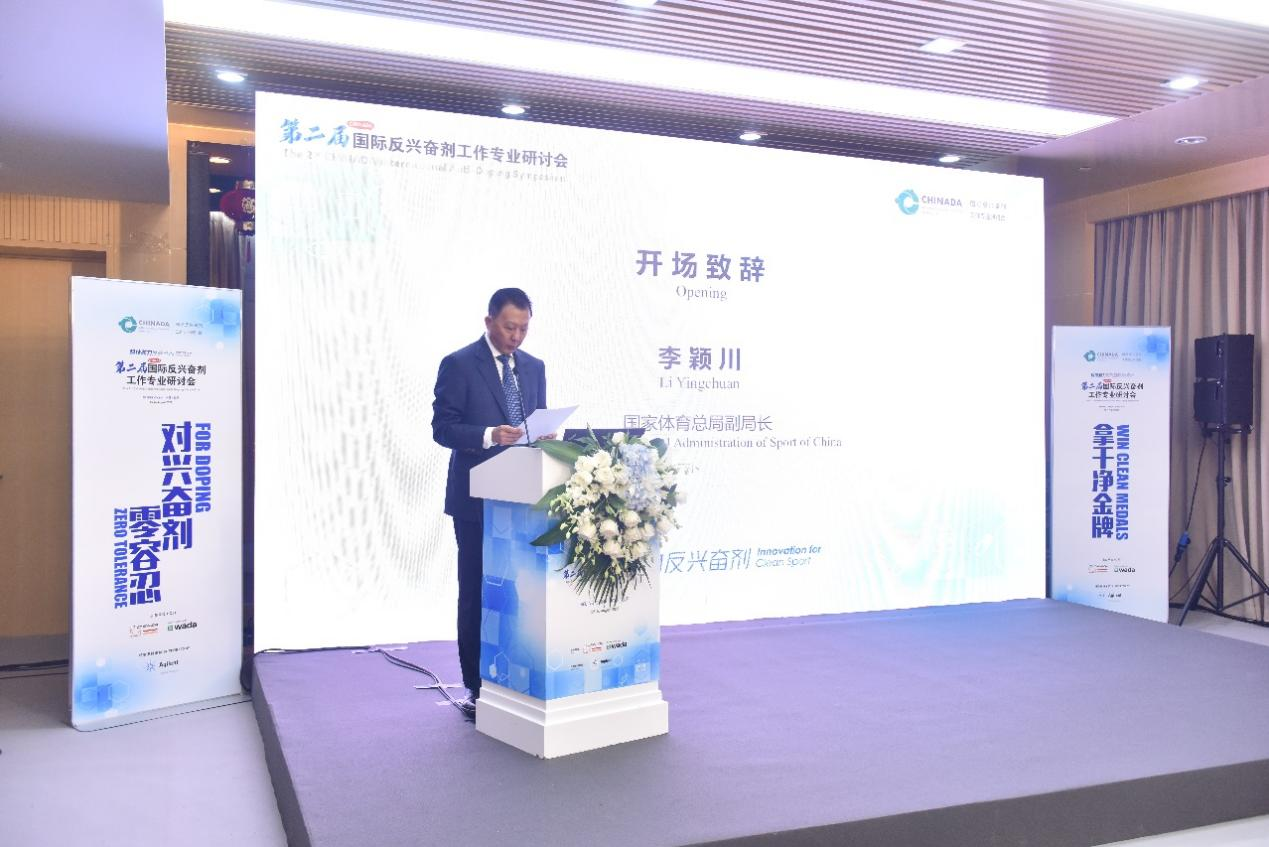
Witold Bańka, President of WADA, said that WADA has always recognized and attached great importance to multi-party cooperation in the pursuit of clean sport. WADA aims to strengthen its leadership in the coordinated development of anti-doping to uphold the integrity and purity of sport worldwide, which requires continuous innovation. He pointed out that “Without collaboration, there is no innovation; and without innovation, there is no progress.” In addition, he spoke highly of CHINADA’S contribution to regional and global cooperation and the development and prosperity of the world anti-doping cause. In the future, WADA and its partners around the world will continue to work together to protect clean sport through cooperation from different angles.
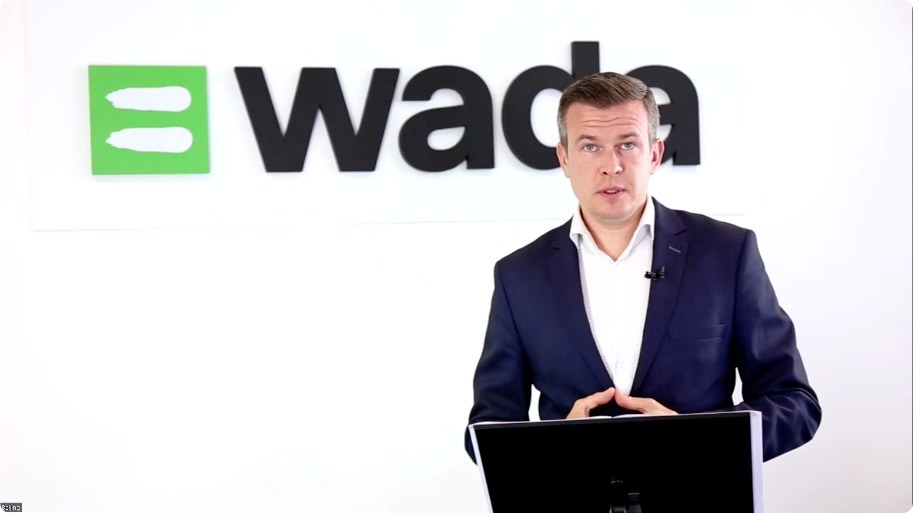
Yang Yang, Vice President of WADA, delivered a keynote speech on the anti-doping work of WADA technology. She began by describing the establishment and constant review of the List of Prohibited Substances and Methods, the single biggest scientific achievement WADA has made in its 23-year history. Then she introduced WADA’s new technological exploration of online communication under the background of the COVID-19 pandemic, and the new challenges that digital and online lifestyles bring to anti-doping work. Finally, she shared the future of WADA’s work in the field of science and technology and its current state of research and development. Yang Yang highly recognized this symposium and expressed appreciation to CHINADA and the guests in this symposium for their contributions to anti-doping work.
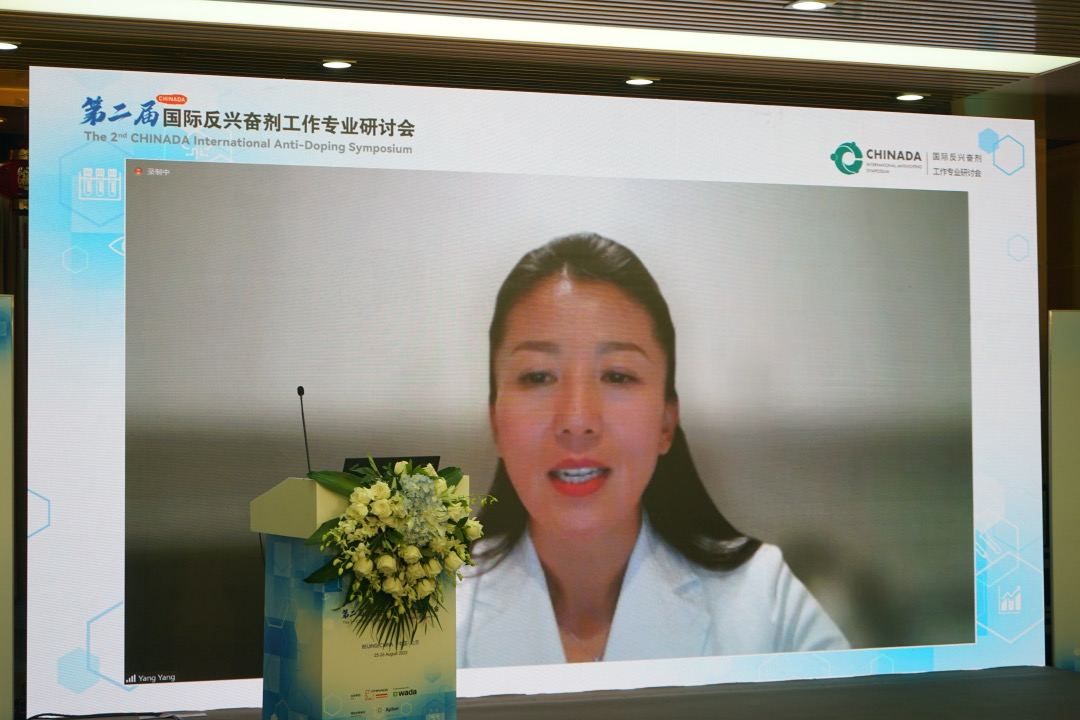
Chen Zhiyu, Director General of CHINADA, focused on the theme of this symposium, introduced the achievements of China in recent years in promoting China’s anti-doping governance system and governance capacity, and the progress and efforts of the work in organizational system construction, doping control, intelligence and investigation, education and prevention, and legal system construction through innovative anti-doping governance system mechanisms and working methods and approaches. In terms of governance capacity and means, led and supported by scientific and technological innovation, China Anti-Doping Intelligent Management System (AIMS) based on big data and artificial intelligence has been completed, enabling systematic, automated, intelligent and targeted management for every aspect of the anti-doping program, and providing strong scientific and technological support for China’s anti-doping governance system. As one of the initiators, CHINADA fully participated in the international DBS program and independently developed the DBS testing equipment “CoreShell”, and successfully first brought the new method into routine implementation during the Beijing 2022 Winter Olympic Games. CHINADA used this symposium to share new practices, so as to contribute wisdom and strength to a more innovative, coordinated and efficient anti-doping program worldwide and build a global anti-doping community with a shared future.
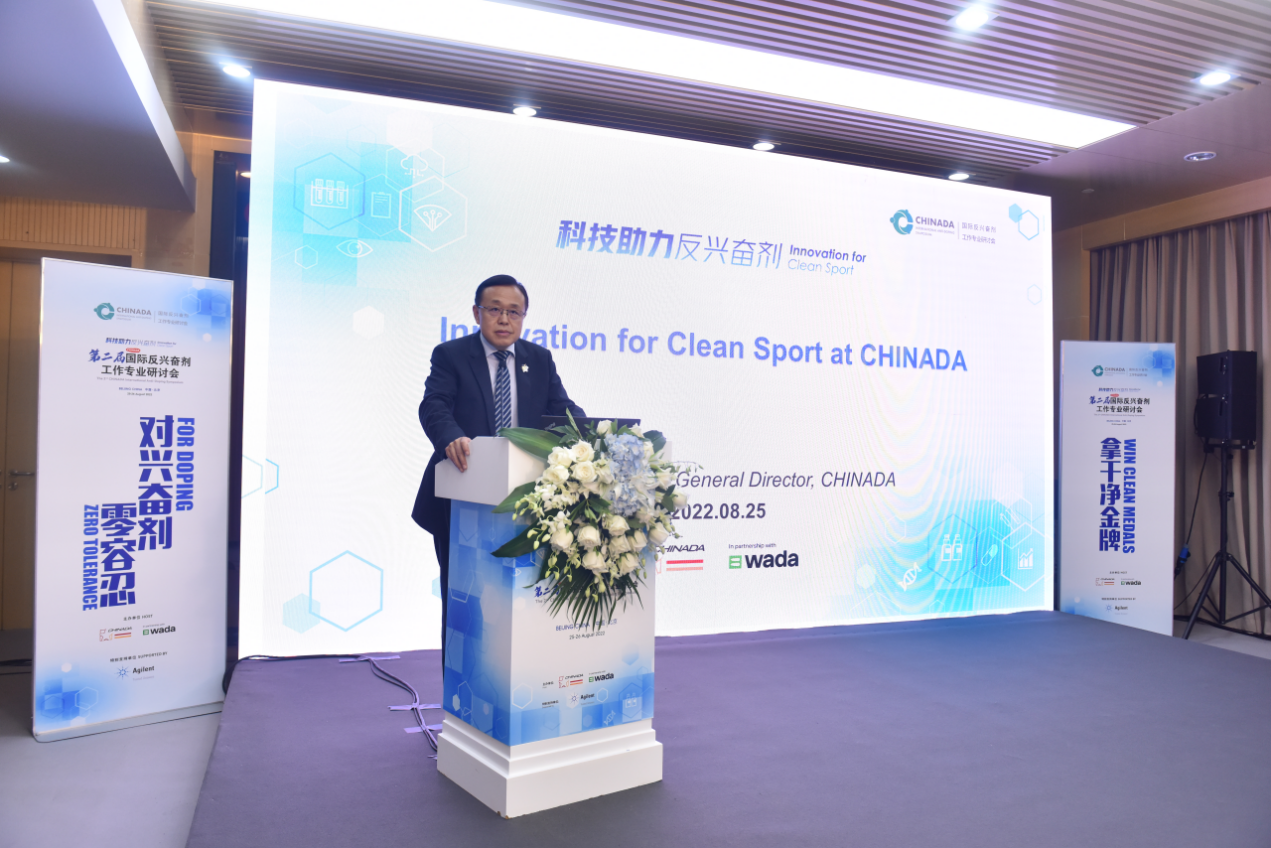
Benjamin Cohen, Director General of ITA, delivered a keynote speech titled “Visible & Analytical - ITA passing through Beijing 2022”. Firstly he emphasized the importance of efficient communication in anti-doping work, then presented Beijing 2022 anti-doping program in detailed numbers. Finally, he briefly introduced technological key areas for the Olympic Games.

At the symposium, representatives of CHINADA shared and showed the AIMS covering the whole chain of anti-doping work, providing anti-doping functions of “prevention and anti-doping” integration, and introduced DBS testing equipment research & development application and technical practice. The representatives of DBS testing work in WADA introduced the progress and the future development plan, and shared the two aspects of “sampling and transportation” and “testing and storage”. Zhang Hong, Athlete Committee Member of WADA, Yuhan Tan, Athlete Committee Member of WADA, and Su Yiming, Winter Olympic Gold Medalist, shared their experiences and perspectives on DBS testing.
The symposium also featured the innovation of various international anti-doping agencies in terms of technology enablers. The CTO of WADA said that WADA is optimizing the athlete port and DCO interface to enhance big data analysis, and to build an ADAMS ecosystem. Representatives from ITA mainly introduced the Pass-Compass anti-doping system, which integrates the whole process of anti-doping work, and how to use the system to carry out anti-doping work more accurately and efficiently. By giving practical cases, they introduced that the system can not only improve the efficiency of doping control through data management and information interconnection, but also enhance the synergistic effect of all parties involved in anti-doping work.
Representatives of various countries also took this opportunity to share their achievements and experience in anti-doping scientific and technological innovation. The representative of the Japan Anti-Doping Agency (JADA) introduced cross-field cooperation with universities and other scientific research institutions to help JADA’s innovation in science and technology. The representative of the Korea Anti-Doping Agency (KADA) explained in detail the anti-doping management system and paperless testing, as well as the responsibilities and contributions of the newly established Science and Medicine Department. The representative of the Anti-Doping Norway (ADNO) explained how online anti-doping education encourages athletes to think proactively and strengthens the role of the NADO in society, thereby forming social consensus. Representatives of the United States Anti-Doping Agency (USADA) introduced innovations such as virtual testing and the disclosure of sports supplement testing results. The representative of the National Anti Doping Agency of Germany (NADA) introduced cooperation with scientific research institutions to assist DBS education and testing, and shared the experience of German athletes’ DBS testing during the Tokyo Olympic Games.
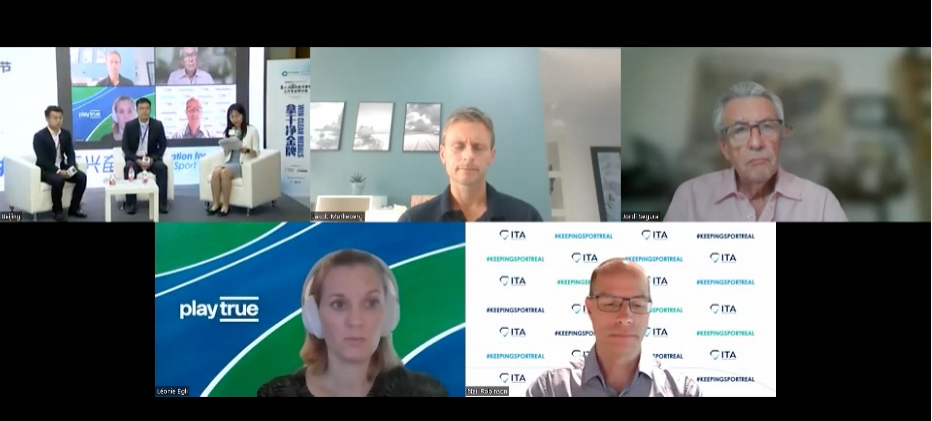
More than 170 international colleagues from 46 international organizations, national and regional anti-doping organizations, and more than 1000 local colleagues from 38 anti-doping departments in national federations, 30 provincial anti-doping organizations, committees of CHINADA, the members of anti-doping branch of the China Sport Science Society, and colleagues from Organizing Committee of Chengdu World University Games and Hangzhou Asian Games, and DOCs and clean sport education officers attended the meeting in person and virtually.








